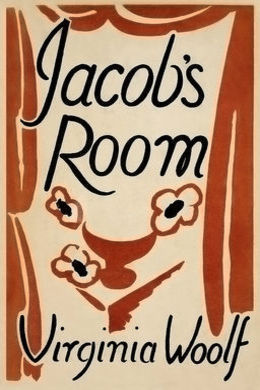
-
EPUB 210 KB
-
Kindle 272 KB
-
Support epubBooks by making a small $2.99 PayPal donation purchase.
Description
Jacob’s Room is Virginia Woolf’s first truly experimental novel. It is a portrait of a young man, who is both representative and victim of the social values which led Edwardian society into war. Jacob’s life is traced from the time he is a small boy playing on the beach, through his years in Cambridge, then in artistic London, and finally making a trip to Greece, but this is no orthodox Bildungsroman. Jacob is presented in glimpses, in fragments, as Woolf breaks down traditional ways of representing character and experience. The novel’s composition coincided with the consolidation of Woolf’s interest in feminism, and she criticizes the privilege thoughtless smugness of patriarchy, the other side',the men in clubs and Cabinets’. Her stylistic innovations are conscious attempts to realize and develop women’s writing and the novel dramatizes her interest in the ways both language and social environments shape differently the lives of men and women.
229 pages with a reading time of ~3.50 hours (57250 words), and first published in 1922. This DRM-Free edition published by epubBooks, 2011.
Community Reviews
There are currently no other reviews for this book.
Excerpt
“So of course,” wrote Betty Flanders, pressing her heels rather deeper in the sand, “there was nothing for it but to leave.” Slowly welling from the point of her gold nib, pale blue ink dissolved the full stop; for there her pen stuck; her eyes fixed, and tears slowly filled them. The entire bay quivered; the lighthouse wobbled; and she had the illusion that the mast of Mr. Connor’s little yacht was bending like a wax candle in the sun. She winked quickly. Accidents were awful things. She winked again. The mast was straight; the waves were regular; the lighthouse was upright; but the blot had spread. “… nothing for it but to leave,” she read. “Well, if Jacob doesn’t want to play” (the shadow of Archer, her eldest son, fell across the notepaper and looked blue on the sand, and she felt chilly–it was the third of September already), “if Jacob doesn’t want to play”–what a horrid blot! It must be getting late. “Where IS that tiresome little boy?” she said. “I don’t see him. Run and find him. Tell him to come at once.” “… but mercifully,” she scribbled, ignoring the full stop, “everything seems satisfactorily arranged, packed though we are like herrings in a barrel, and forced to stand the perambulator which the landlady quite naturally won’t allow….” Such were Betty Flanders’s letters to Captain Barfoot–many-paged, tear-stained. Scarborough is seven hundred miles from Cornwall: Captain Barfoot is in Scarborough: Seabrook is dead. Tears made all the dahlias in her garden undulate in red waves and flashed the glass house in her eyes, and spangled the kitchen with bright knives, and made Mrs. Jarvis, the rector’s wife, think at church, while the hymn-tune played and Mrs. Flanders bent low over her little boys’ heads, that marriage is a fortress and widows stray solitary in the open fields, picking up stones, gleaning a few golden straws, lonely, unprotected, poor creatures. Mrs. Flanders had been a widow for these two years. “Ja–cob! Ja–cob!” Archer shouted. “Scarborough,” Mrs. Flanders wrote on the envelope, and dashed a bold line beneath; it was her native town; the hub of the universe. But a stamp? She ferreted in her bag; then held it up mouth downwards; then fumbled in her lap, all so vigorously that Charles Steele in the Panama hat suspended his paint-brush. Like the antennae of some irritable insect it positively trembled. Here was that woman moving–actually going to get up–confound her! He struck the canvas a hasty violet-black dab. For the landscape needed it. It was too pale–greys flowing into lavenders, and one star or a white gull suspended just so–too pale as usual. The critics would say it was too pale, for he was an unknown man exhibiting obscurely, a favourite with his landladies’ children, wearing a cross on his watch chain, and much gratified if his landladies liked his pictures–which they often did. “Ja–cob! Ja–cob!” Archer shouted. Exasperated by the noise, yet loving children, Steele picked nervously at the dark little coils on his palette. “I saw your brother–I saw your brother,” he said, nodding his head, as Archer lagged past him, trailing his spade, and scowling at the old gentleman in spectacles. “Over there–by the rock,” Steele muttered, with his brush between his teeth, squeezing out raw sienna, and keeping his eyes fixed on Betty Flanders’s back. “Ja–cob! Ja–cob!” shouted Archer, lagging on after a second. The voice had an extraordinary sadness. Pure from all body, pure from all passion, going out into the world, solitary, unanswered, breaking against rocks–so it sounded. Steele frowned; but was pleased by the effect of the black–it was just THAT note which brought the rest together. “Ah, one may learn to paint at fifty! There’s Titian…” and so, having found the right tint, up he looked and saw to his horror a cloud over the bay. Mrs. Flanders rose, slapped her coat this side and that to get the sand off, and picked up her black parasol. The rock was one of those tremendously solid brown, or rather black, rocks which emerge from the sand like something primitive. Rough with crinkled limpet shells and sparsely strewn with locks of dry seaweed, a small boy has to stretch his legs far apart, and indeed to feel rather heroic, before he gets to the top. But there, on the very top, is a hollow full of water, with a sandy bottom; with a blob of jelly stuck to the side, and some mussels. A fish darts across. The fringe of yellow-brown seaweed flutters, and out pushes an opal-shelled crab–
